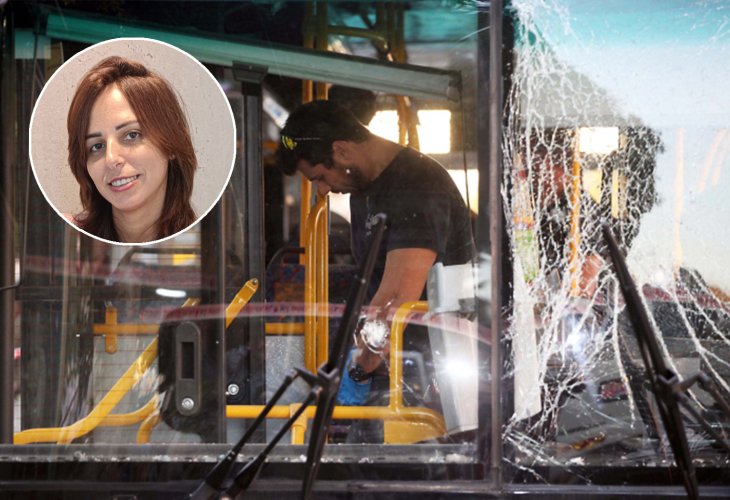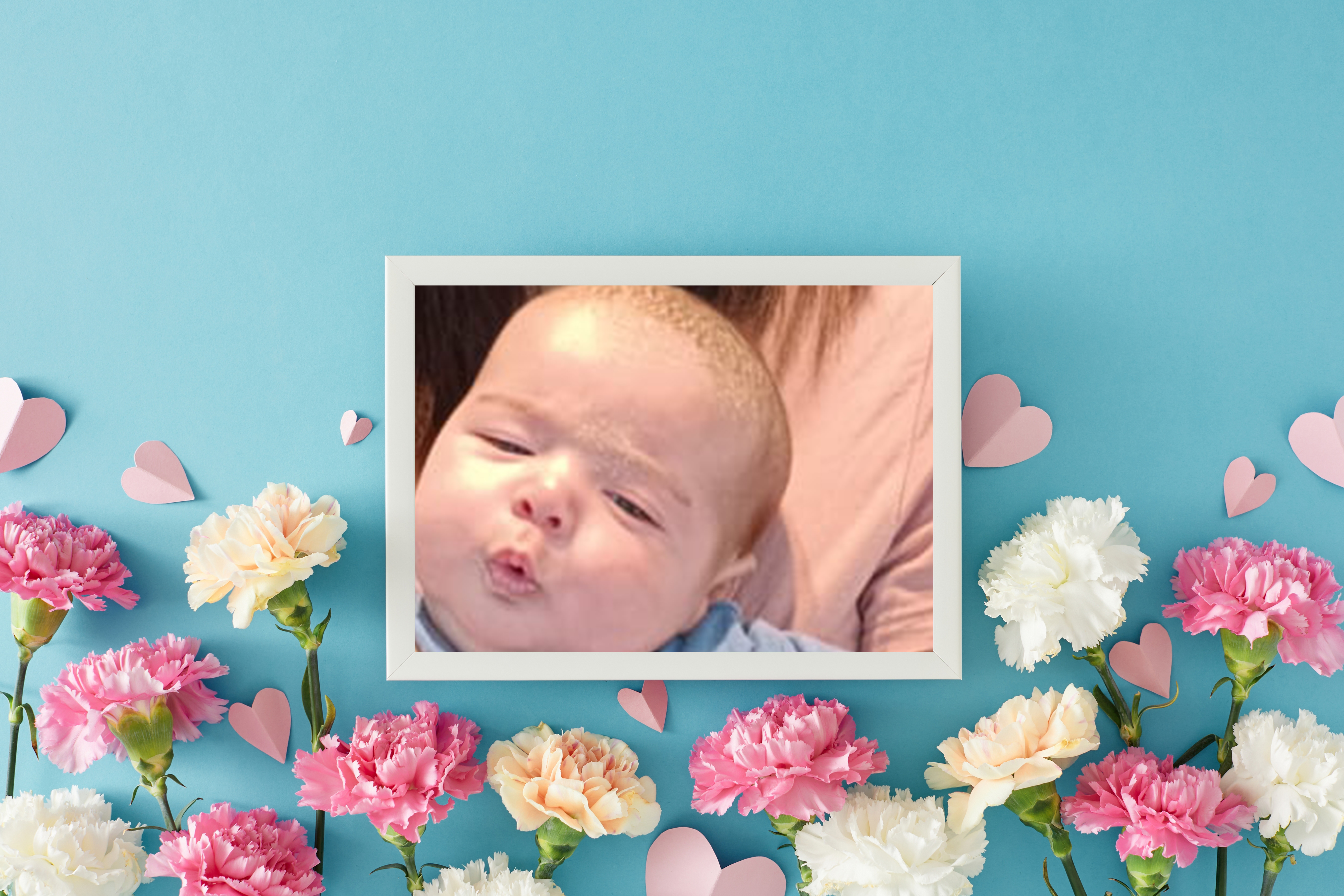"The Terrorist Looked at the Driver, and Without Hesitation – Drew a Knife"
After surviving an attack, Racheli Elisheva Schwartz went through an emotionally challenging period. Eight years later, she confidently states, "Because of what I went through, I grew closer to Hashem." And how does her infant son factor into the story?
 In the circle: Racheli Elisheva (illustration photo: Gideon Markowicz / FLASH90)
In the circle: Racheli Elisheva (illustration photo: Gideon Markowicz / FLASH90)"I read, see, and hear about families who recently experienced the trauma of their lives, and my heart goes out to them," says Racheli Elisheva Schwartz. She herself endured a very difficult attack about eight years ago and has since been dealing with post-trauma and a challenging adjustment. Yet, along with the difficult memories, Racheli Elisheva notes that she also received the greatest gift of her life, as thanks to that event, she returned to religion, became much stronger, and recently brought a healthy baby into the world in a miraculous manner.
"I Cried Out from the Heart: 'Hashem, Get Me Out of Here!'"
"The attack I experienced is very well-known in Israel, as the hero who prevented it is bus driver Hertzel Biton, who was honored that year with lighting a beacon on Independence Day," Racheli Elisheva recounts, providing details about the day: "I had just returned from maternity leave with my third child and was back commuting to work every day on the No. 40 line in Bat Yam. On the day of the attack, I boarded the bus as usual and sat parallel to the terrorist. I was absorbed in my thoughts when suddenly I saw the man opposite me rise, approach the driver, and start spraying him in the eyes. The driver, Hertzel Biton, initially tried to fight back, but then the terrorist drew a knife, calmly declared 'Allah Akbar,' and stabbed him twice at a 180-degree angle. That was when I realized it was an attack. Suddenly, I felt everything I had experienced in my life flash before my eyes—from childhood until that day—and I saw my little daughters who just wanted their mom to be with them.
"Then, suddenly, I pulled myself together, dropped all the bags I was holding, and tried to squeeze to the back of the bus, seeing the terrorist moving among the passengers and stabbing each one. No one on the bus had a weapon, and worst of all—the driver was unconscious, leaving the bus locked with no way to open the doors and escape."
The moments of fear and helplessness will never leave Racheli Elisheva. "I watch the terrorist going from passenger to passenger, stabbing and stabbing... understanding that soon it will be my turn. I so longed for a policeman or soldier to come, but then, at the very last moment, with only one person left between me and the terrorist, it crossed my mind: 'The only one who can help you here is Hashem,' and then I let out a great shout from the heart: 'Hashem, Get Me Out of Here!!!'"
Racheli Elisheva describes a special providence, as at that very moment, the driver regained consciousness and came back to life, the first thing he did was open the doors. "I was the first to get out of the bus, turning to the right," she describes, "while the terrorist exited after me and turned left. That day, I continued to work as if nothing had happened. I played it as if everything was fine, returned in the afternoon to care for my daughters, and allowed my husband to spend long days in the army, hardly visiting home. I tried to be strong, but apparently, it took a toll on my health because after a few months, everything blew up—I noticed that I was constantly crying, not functioning, having trouble sleeping at night, and being stressed over minor things. I began to realize I was suffering from post-trauma."
A Gift from Heaven
Racheli Elisheva emphasizes that she was highly aware of herself and what she was experiencing, she also ensured getting the necessary treatment, and at the same time, she grew very close to Hashem. "I added a name to myself – Elisheva, began praying regularly and reading Tehillim, and I also keep Shabbat, even though my husband is far from that and does not observe. Today, I am, thank God, healthy and strong, but of course, it is a process and I went through a challenging and very difficult time."
A year and a half later, still amidst challenging days, Racheli Elisheva discovered she was pregnant again. "It was a pregnancy that didn’t suit us at all at the time," she explains, "the girls were still very young, and I was suffering and mentally challenged. I didn’t even think twice before I scheduled an appointment for an abortion. It was clear to me that I couldn’t cope with pregnancy and another baby. I hoped that after the procedure, I’d feel relief and be more at peace, but it turned out exactly the opposite."

Racheli Elisheva pauses for a moment. It's evident that recalling those days is challenging. "I went through very difficult days of regret and depression," she describes, "I kept imagining what the baby could have looked like and how old he could have been. As a believing woman, I also understood that I had done something terrible, and I felt I had to atone for it. It gave me no rest."
One day, Racheli Elisheva looked online for an answer to the question: "how to atone for an abortion," and she stumbled upon a talk by Rabbi Zamir Cohen on the matter. "The Rabbi spoke about how to atone by repenting sincerely and regretting. Additionally, one should weigh the balance by assisting another woman who wishes to abort, to prevent it, giving her support and help. When the Rabbi was asked what someone should do if they don’t know a woman in such a situation who needs help, he replied that it is possible to donate to Hidabroot's 'Mother' department—where the funds will be transferred to those in need of it."
"I didn’t think twice," states Racheli Elisheva, "I decided to transfer a certain amount to the department every month, with my goal being to reach 3,600 shekels. I didn’t share this with anyone, not even my husband. I just donated the money quietly while praying to Hashem, asking Him to grant me another child, if possible—a son. It was an almost supernatural request, as at the time my husband didn’t want another pregnancy at all, claiming I had already undergone three cesarean sections and feared that at age 40, with my complex medical history, going through another pregnancy and surgery was risky. So, we took steps to prevent it. But that didn’t stop me from continuing to pray for it at every opportunity. I knew that Hashem is great, and if He decides to send me this great gift, He will find a way."
About a year ago, Racheli Elisheva felt a special divine providence and a genuine embrace from Hashem when she was informed, contrary to all logic, that she was pregnant. "We were completely shocked," she recounts, "conceiving at such an age is not simple, especially when taking measures to prevent it. But, of course, I was overjoyed. I felt that Hashem had sent me a great and special gift, and although I was warned that a pregnancy after age 40 comes with many risks and is not easy, I had no fear. I knew I had protection from above. By the way, the month I conceived, I contacted Hidabroot to inquire how much I had donated cumulatively, and I was shocked to discover that precisely during those days, I had finished paying the 3,600 shekels. It was truly moving."
Now, while we are conversing, Racheli Elisheva holds her one-and-a-half-month-old son, who was born at the start of the war, in her arms. "I want to say to every woman in the world—if you want something from Hashem, just ask and insist. Even if you think you don’t deserve it, even if it seems impossible. Don’t give up, because Hashem is great and wants to do everything for you. He is simply waiting for your prayers."

